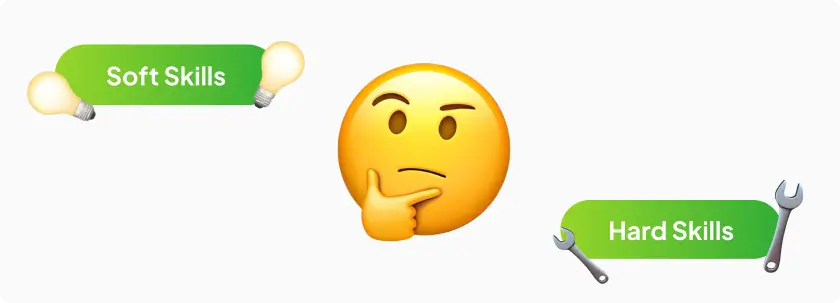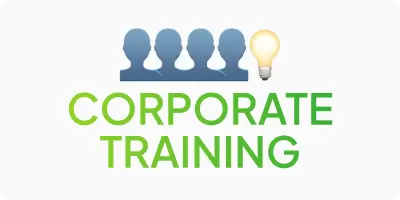
In the modern world, work (especially in the field of information technology) requires a diverse set of skills that can be divided into two categories: Hard Skills and Soft Skills. Let’s look at the difference between these definitions and which ones are more important.
What are Hard Skills?
Hard Skills are specific, measurable skills that can be acquired through education, training, or practical experience. These are more technical skills that are usually specific to a particular profession. An example in IT professions:
- Programming (knowledge of Python, Java, C++, etc.)
- Databases (knowledge of SQL, NoSQL, MySQL, etc.)
- Operating systems (knowledge of Linux, Windows, Unix)
That is, hard skills are practical skills that are directly related to your profession.
What are Soft Skills?
Soft Skills are interpersonal and behavioral skills that are difficult to measure, but are critical to success in any job. They include:
- Communication skills
- Leadership
- Time management
- Critical thinking and problem solving
- Emotional intelligence
- Teamwork
These skills, unlike hard skills, help not only in your career, but are also very important in everyday life and communication with people.
Which skills are more important?
Let’s look at an example.
- The first situation. You can draw very well, but you don’t want to do it, you don’t like it at all. Question. Will you do it? It depends on the context. If you can earn money with it, then you will paint, but it will be psychologically difficult, because you don’t like it.
- The second situation. You want to paint very much, but you don’t know how to do it at all. The same question. Will you do it? Again, it all depends on the circumstances. If it is necessary, you will learn and do it.
- The third situation. You know how to draw and want to draw very much, you like it and can’t live without it. Then you will paint 100%. It doesn’t matter if it brings you money or is just for your soul, but you will do it.
Your desire is conditional soft skill, your ability is hard skill. No matter how you slice it, one makes no sense without the other. The only difference is that it is much easier to develop hard skill than soft skill, so it is better to start with soft skill, analyze what you like, and choose a profession and level up hard skill based on that.
The importance of hard skill
- Hard Skills are the basis for any specialized job. For example, a programmer without knowledge of programming languages will not be able to write code, and a system administrator without an understanding of networking technologies will not be able to set up and maintain network infrastructure. These skills are fundamental to the professional performance of tasks and without them it is impossible to achieve results.
- Confirmation of qualifications. Some professions require certificates or diplomas (or further salary may depend on it) that confirm the presence of certain hard skills.
- Professional development and career growth. Continuous development of Hard Skills allows you to move up the career ladder, develop your skills and become a more professional specialist. This not only improves your knowledge and allows you to grow in your career, but also affects your earnings and opens up new horizons for you.
- Ability to solve complex technical problems. As you improve your skills, you will be able to implement more complex projects, do it faster and better. Not only will you become a more valuable employee in the company, but you will also be able to save time on tasks and endure less stress (and as a result, prevent burnout at work). In other words, when you know what you’re doing better, it’s easier to complete tasks, you worry less about deadlines, and you’re less stressed.
The importance of soft skins
- Improved communication. Communication skills are the foundation for successful interactions with colleagues, clients, and management. The ability to communicate your thoughts clearly and effectively, listen to others, and engage in constructive dialog helps avoid misunderstandings, promotes better understanding of tasks, and improves the overall work environment.
- Developing leadership skills. Leadership skills allow employees to better and more effectively manage teams, motivate others, and achieve goals. Leadership includes the ability to make decisions, resolve conflicts, delegate tasks, and maintain team spirit. True leaders are able to inspire their team to achieve great things and create a comfortable working environment.
- Problem solving and decision making. Soft skills, such as critical thinking and problem solving, are important for finding effective solutions in difficult situations. These skills help you analyze information, evaluate different options, and make informed decisions. Such skills can be critical in the 21st century, when our world has accelerated dramatically and the ability to make quick decisions can play a key role.
- Time management and organization. Time management and organizational skills help employees effectively plan their time, set priorities, and complete tasks on time. This increases productivity, reduces stress, and allows you to achieve better results. The ability to organize your work is especially important in environments with a high workload and a large volume of tasks. That’s why it can have a positive impact on your career growth and make you stand out among your colleagues.
- Teamwork. Teamwork is a very important element in many professions. The ability to cooperate with others, respect different points of view, and work together effectively distinguishes a true professional from an ordinary specialist. Teamwork not only helps to achieve results faster and more efficiently, but also allows you to share knowledge and improve your hard and soft skills.
Knowledge and skills are not enough for career growth. Empathy, leadership, teamwork, and the ability to respond quickly to problems are also very important. Without these skills, it is very difficult to achieve success in your career and life in general.
Balance of Hard and Soft Skills

In the IT sphere, the balance between hard and soft skills is particularly important. Despite the fact that most IT professions are purely technical, soft skills play an important role in achieving success and efficiency.
The importance of balance
Hard Skills provide the necessary technical knowledge and skills to perform specific tasks, such as programming, database management, system administration, etc. Soft Skills help to establish cooperation, communicate effectively, manage time, and resolve conflicts. The combination of these skills allows IT professionals to be more flexible and adaptable to different situations.
How to develop Hard Skills?
- Attending specialized courses, participating in webinars and seminars. As well as other activities that can provide you with the necessary information and improve your skills.
- Implementing real projects and gaining practical work experience.
- Obtaining various certifications, such as Cisco Certified Network Associate.
How to develop Soft Skills?
- Courses on effective communication, public speaking, and other training that will help you develop your communication, public speaking, and leadership skills.
- Participation in group projects where interaction and cooperation are important to practice communicating with other professionals.
- Work with a mentor to develop leadership skills, emotional intelligence, etc.
- Participation in seminars on time management, stress management, and conflict resolution.
In general, any format for improving these skills is important for improving soft skills. Moreover, they are important not only for work but also for normal interaction with people and help make you more pleasant and interesting to communicate with.
Conclusion
Hard Skills are practical skills and knowledge, Soft Skills are communication skills, leadership qualities, etc. To achieve good results and career growth, you need to improve both types of skills, attend webinars, take courses, and most importantly, practice them on real projects. If you want to succeed in IT, work on your Hard and Soft Skills and develop in your field!












